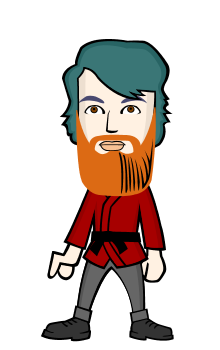I - The Human Conditions[edit]
Arendt introduces the term vita activa (active life), by distinguishing it from vita contemplativa (contemplative life). Each term represents a vision of how life should be lived. Vita activa was originally identical to the political actions of free citizen in the ancient Greek Polis. As this system of governance waned, so the meaning of political life got demoted to the concept of social life. This is evident in the distortion of Aristotle's definition of man as a "political animal" ("ὁ ἄνθρωπος φύσει πολιτικὸν ζῷον") which was translated as "social animal" by Seneca and medieval writers, while the word "social" did not exist in ancient Greek vocabulary. In the same manner, starting with Plato, philosophy began to see itself as following the vita contemplativa and aiming to experience the eternal, outside and above the political sphere. In introducing the term vita activa, Arendt aims to offer an alternative: attaining the immortal through a specific form of political life that is different from the social life that we all live by definition of being human. Explaining this is the subject of the book.
The vita activa comprises three human activities – labor, work, and action – which correspond to the three basic conditions under which humans live.
Arendt points out that the "human condition" and "human nature" are not synonymous. She draws a distinction between them by explaining that, if humans were to colonize the moon or some other planetary body, they would live under new conditions. Their human nature, however – if there is such a thing – would remain intact. Human nature is located within human beings; the human condition is not.
II - The Public and the Private Realm[edit]
For Arendt, Ancient Greek life was divided into two realms: the public realm, in which political activity was performed, and the private realm, site of property and family life. It was in the public realm alone where as first expressed by Aristotle, true freedom could be gained through "great words and great deeds" as personal glory could be attained in the battlefield. In this respect Arendt noted that Athenian Democracy was not really the realm of the many, as it is commonly thought, but of the One, who through powerful words and deeds could leave his mark on the world and as this world was thought to be immortal, the man who would leave his mark in it would also pertain in its immortality. The private realm on the contrary, is the realm for necessity. It is located in the "shadowy interior of the household" which consisted of women, children and slaves. All the activities concerning the sustenance of human lives are operated here, including production, reproduction, economy, etc. Slaves, in this respect, were people whose lives were entirely ruled by necessity, both theirs and their masters. Violence is the tool to maintain a household which belongs to the head (oikonomon in Greek). Private affairs can be charming but never glorious and this is why they were naturally excluded from the public debate in the ancient Agora. Since the Roman Age, a third realm has come into being: the social. In relation to the other two, society is simply a collection of private needs in one entity and is therefore comparable to the household. Both the social and private therefore are realms of necessity, the need to sustain one's own body through labor (explained below) and that of their family. The public sphere in contrast starts where necessity ends and this is why the citizens of city-states would try to alleviate themselves from it as much as possible (often using slaves) in order to enter it. Once there, these citizens would debate on issues above and beyond everyday sustenance and bereft of personal or private interests. Topics would include the public affairs which concerned everyone such as education, war and law. Violence is totally excluded from this sphere where glory comes from one's successful persuasion of others with one's own reason and rhetorical power.



